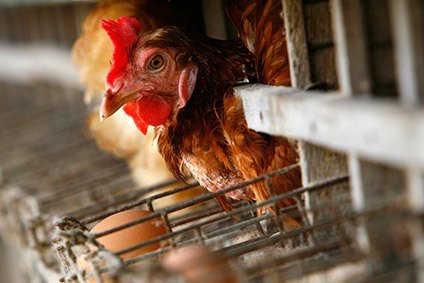
Post Holdings has insisted its US egg business is in a strong position following the bird flu outbreak and suggested it is eyeing possible acquisitions in the sector.
The US company, which owns egg supplier Michael Foods, saw its egg volumes fall 25% in its most recent quarter, the fourth of its financial year, which ran until 30 September.

Discover B2B Marketing That Performs
Combine business intelligence and editorial excellence to reach engaged professionals across 36 leading media platforms.
Post’s egg business had been affected by the outbreak of avian influenza in parts of the US. The outbreak this spring saw Post concede in May it would be “unable to fully perform under its existing supply agreements with customers,” warning at the time a third of its volume commitments had been hit by the disease.
Announcing its full-year results on Monday, Post said fourth-quarter revenues from its egg business increased 1.1% on the back of higher pricing and a favourable product mix.
“Michael Foods performed quite well. We continue to navigate the reverberations of avian influenza. That event echoes through our business practices around bio security, our relationships with customers and our overall approach to risk management. It would be foolish to conclude this risk has contained, rather we have a better understanding of it and have developed a thorough approach to mitigate the effects of any future outbreaks. I am very proud of our team’s response to this crisis and I believe we are in a better competitive position than we were prior to AI,” explained CEO Rob Vitale.
On a call with investors in the wake of the results announcement, Post said higher egg pricing will continue through into the new year as it works to replenish stocks.

US Tariffs are shifting - will you react or anticipate?
Don’t let policy changes catch you off guard. Stay proactive with real-time data and expert analysis.
By GlobalData“We expect the repopulation to take until the end of calendar 2016 to be completely back online, and we would expect to get progressive repopulation between now and then,” CFO Jeff Zadoks said.
With one analyst pointing out prices of eggs from Post in the quarter were up about 26% in the quarter, questions arose about the impact on demand.
“We’ve seen some modest demand destruction in the ingredient business where companies have the ability to take eggs out of their ingredients or out of their recipes. So we have seen very modest if any at retail or in foodservice, but some in ingredients,” said Vitale.
Talk centred around the demand for eggs rising in the US, particularly as foodservice outlets move to serving breakfast all day. Post was asked whether it could foresee any acquisition opportunities in the egg sector to enable it to boost volumes, or whether it would look to invest in its own production.
In September this year, Post entered an agreement to acquire Willamette Egg Farms, a US producer and wholesale distributor of eggs for US$90m.
“There is plenty of acquisition targets in the segment before going to a greenfield approach, but we are also not shying away from looking at greenfield opportunities,” said Vitale.
Tim Ramey, analyst at Pivotal Research Group, asked whether any acquisition in the egg sector – greenfield or not – would take place this year.
“I wouldn’t want to take a position on anything that near end, but I think it is fair to say longer-term we will see one or both,” said Vitale.





